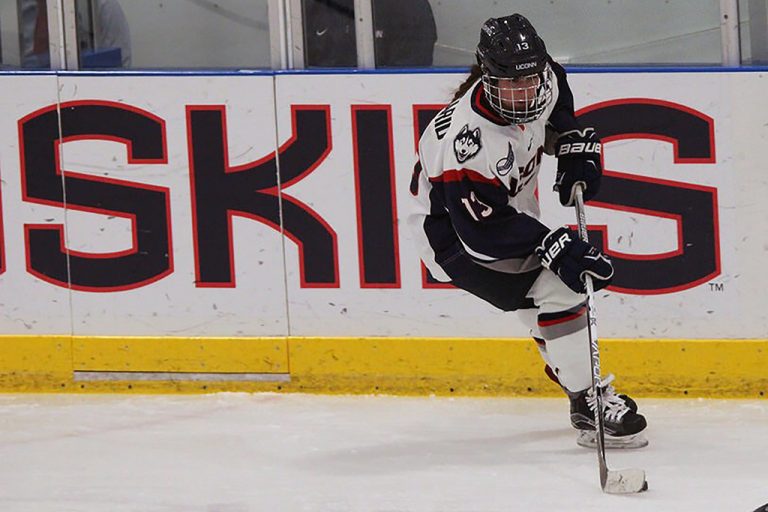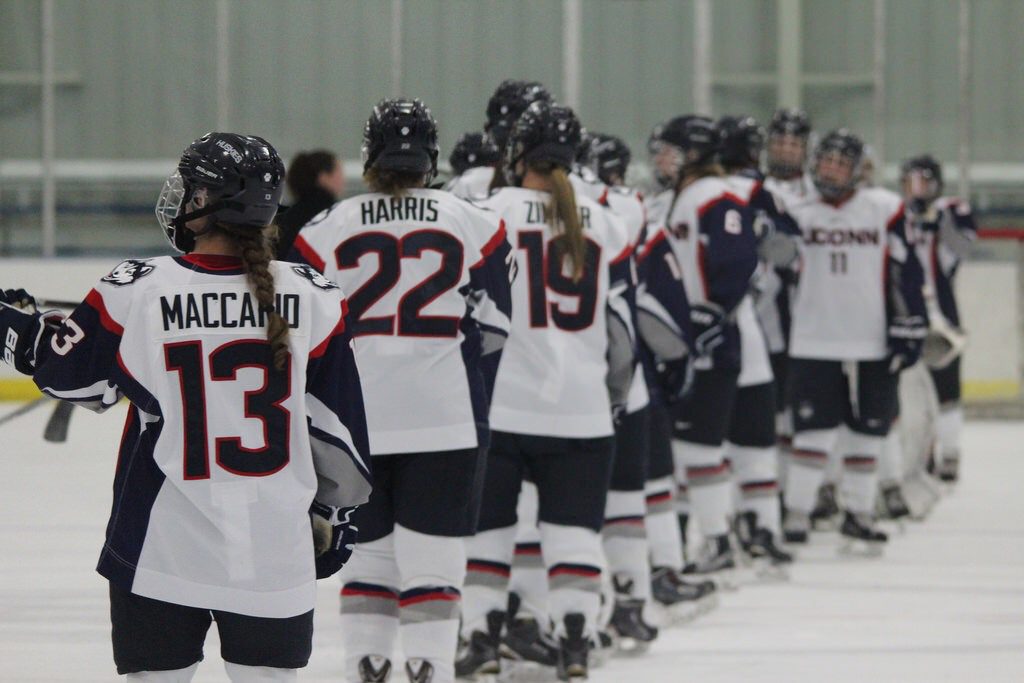The fight for equality in sport takes place everywhere. Right here ata the University of Connecticut, Laura Burton, an associate professor in the Neag School of Education and one of the co-heads of the Sport Management program, is doing her part.
A former athlete and NCAA Division III Athletic Trainer, Burton returned to her native Nutmeg state to complete her education here at 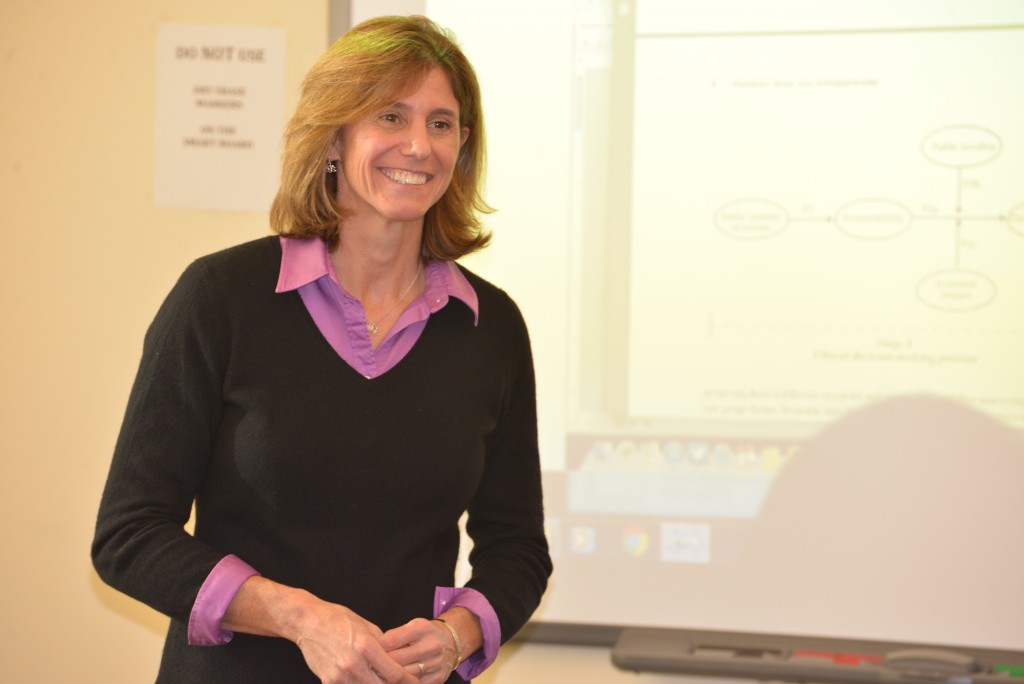 UConn and since then has dedicated her work in large part to research about the roles of gender in sports. She also served as a faculty member at North Carolina State University.
UConn and since then has dedicated her work in large part to research about the roles of gender in sports. She also served as a faculty member at North Carolina State University.
“Because I lived it. I was always the kid who felt like the girls weren’t getting fair gym time in high school or we didn’t have equal uniforms...” Burton said on what inspired her to get into this line of research. “I knew I wanted to study something I had experienced.”
As a professional some of her earlier work focused on how athletics benefited women, now she has a more concise focus, women in leadership positions.
“There are very few women in leadership positions in sports organizations across all domains, from interscholastic, intercollegiate, professional or international sport, women are really underrepresented in leadership.” Burton said.
The discrepancy has no logical basis either.
“Think, half your participant population is women, or girls, why don’t we have an equal number of people at the leadership table?”
Burton, and her peers in the field, find it to be due to our perceptions on who should be in those roles which hurts women.
She says, “We don’t perceive women to be capable of and/or do we want them in leadership positions in general. In sport organizations, because we think it’s a real male domain, we don’t think that women can run a football program or an athletic department. There’s a lot of stereotyping that's influencing women, both trying to get into those positions and how we evaluate them when they’re in it.”
However, women in leadership roles is where UConn first gets accolades from Burton when it comes to women in sports here in Storrs.
“Beth Goetz (the Chief Operating Officer of UConn Athletics) is not only a women in leadership but the types of roles she has are really important,” Burton notes.
“She’s in charge of football. That is critical for her to continue to be successful. To be an Athletic Director, you need to have demonstrated you can handle what is the largest team with the greatest amount of operating expenses, and the greatest opportunity for revenue generation,” she said.
David Benedict’s willingness to put her in such a vital role signals to Goetz, and the intercollegiate athletic community, that she will be an AD one day. It’s an opportunity not often provided to women and Burton credits Benedict for the initiative, believing it will help propel Goetz to her higher career goals.
However that doesn’t mean UConn is doing everything right.
“I call them on the carpet for not having as many women coaching women’s sports. I think we have arguably the best coach in the women’s (basketball) game and I think he (Geno Auriemma) does an excellent job supporting assistant coaches but I think he made a mistake a couple weeks ago when he said there aren’t enough women interested in coaching.”
Says Burton, “I think that’s patently false. There are a lot of women interested in coaching, but there are a lot of constraints put on women that want positions in coaching. You don’t see a lot of women lose jobs and get re-hired and it's a real problem.”
“I’d like to see UConn seek more women’s coaching on the women’s side and it’d be wonderful to see women coaching on the men’s side... I think our support for our women athletes is phenomenal but I also think there’s always places to provide more resources and more equity,” she said.
The problems that face UConn are representative of problems across women’s sports as a whole however. When it comes to improvement, nearly everyone makes the list.
According to Burton, “Who's doing well? Not many. There are few organizations that really do well, the one that comes to mind and it’s probably not going to be a surprise, is the WNBA because they do have women in leadership positions.”
“But it’s the one professional sport organization in the US that’s at the highest profile for women. The rest, honestly I don’t think are doing well at all. I don’t think any of the major men’s professional sport organizations are and I think intercollegiate athletics are doing terrible.”
The number of women leading FBS schools, school that play the highest level of football and subsequently often have the largest athletic departments, is less than 10 percent.
The number of women coaching in women’s sports is declining year after year. And there’s no balancing effect, because while more men become coaches of women's sports, there are really no women becoming coaches in men's sports.
Burton points to The Institute for Ethics and Diversity in Sport (TIDES), as a great evaluator of this. Under the the Direction of Dr. Richard Lapchick from the University of Central Sport, they annually release “Report Cards” grading the practices and statuses of the major sport leagues as well as the intercollegiate athletic system. According to TIDES, college basketball as a whole has improved in recent years while football at all levels continues to score miserably.
“I think the whole industry still needs to look and see ‘Why are there so few women?’” said Burton.
One of the biggest areas of momentum in the movement for equality was the recent protest from the US Women’s National Team for both hockey and soccer.
“It speaks to a bigger problem that they had to go to that extent, where they had to threaten to not participate, to get the governing body of their sport to then negotiate for a contract,” Burton said on the issue. “There should’ve been a recognition that actually these women are playing at the highest level and representing our country extremely well, they’re champions, they’re medalists, they’re contenders, why did it take (threatening to boycott) to get equal pay?”
Burton thinks as a whole this could be the next big thing for women who want their fair share.
“I suspect that this is going to unleash for a lot of our national teams. I wonder if some of our team-based sports are going to look across at their male counterparts and wonder why they aren’t being provided equal resources,” Burton said.
What else is next?
“I continue to support and hope we will see equal pay for our men’s and women’s coaches. That’s a problem when you look across comparable sports. That’s an area where people are starting to pay more attention,” Burton said.
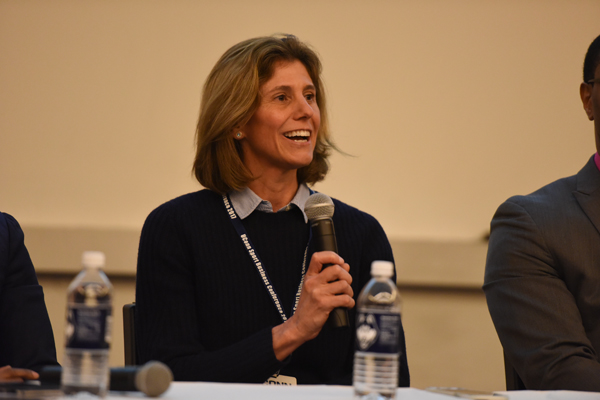 Coaching is an issue Burton holds in importance.
Coaching is an issue Burton holds in importance.
“I hope people are starting to pay more attention to why we’re losing so many women in sports. My colleague Nicole Lavoi from the Tucker Center for Girls and Women in Sport is documenting what has become a pretty significant decline in women coaching in sport at the college level. This isn’t good, we shouldn’t be losing women as coaches, but rather be fostering and supporting young women who want to be coaches.”
Burton is committed to this for the long haul.
“I’m going to stay in this because I still think there’s more work to be done,” she said. “There’s lots of science that says gender stereotypes influence how comfortable we are with women. We haven’t fully fleshed out how that’s influencing women in sport organizations and I’d like to continue to really explore that.”
While women deserve equality in all domains, and will continue to push for what is rightfully theirs, in the world of sports it's going to be a process. With all issues of that comes to basic rights, there’s always going to be individual or group feats of activism and those who promote change and those who prohibit it. While all this unfolds, the work of Burton, and the increased exposure, should make us all more conscientious as fans of sport.
 Dr. Laura Burton co-authors new book on Women in Sport Leadership which highlights that “although women and girls participate in sport in greater numbers than ever before, research shows there has been no significant increase in women leading sport organizations. This book takes an international, evidence-based perspective in examining women in sport leadership and offers future directions for improving gender equity. With contributions from leading international sport scholars and practitioners, it explores the opportunities and challenges women face while exercising leadership in sport organizations and evaluates leadership development practices.”
Dr. Laura Burton co-authors new book on Women in Sport Leadership which highlights that “although women and girls participate in sport in greater numbers than ever before, research shows there has been no significant increase in women leading sport organizations. This book takes an international, evidence-based perspective in examining women in sport leadership and offers future directions for improving gender equity. With contributions from leading international sport scholars and practitioners, it explores the opportunities and challenges women face while exercising leadership in sport organizations and evaluates leadership development practices.”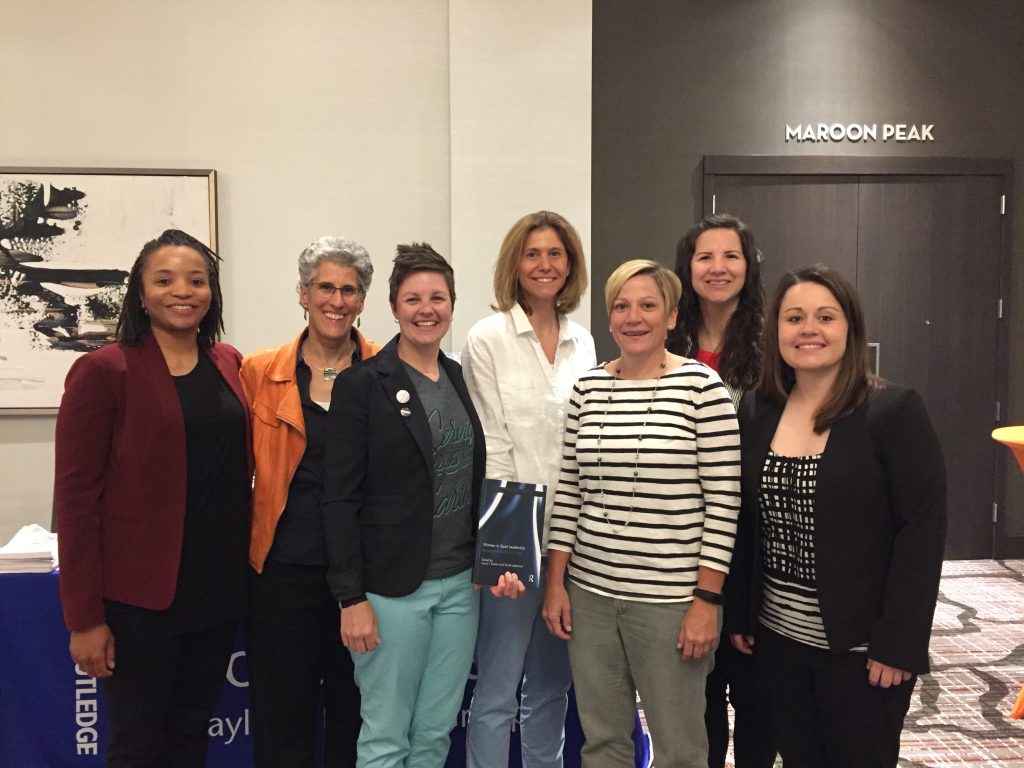
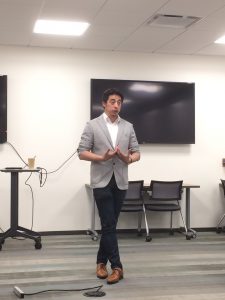 Sport Management alumnus Mikio Yoshimura, who currently works as the Asian Business Development Specialist for the Boston Red Sox, served as the guest speaker at a Brown Bag Luncheon in Boston on Tuesday, June 13.
Sport Management alumnus Mikio Yoshimura, who currently works as the Asian Business Development Specialist for the Boston Red Sox, served as the guest speaker at a Brown Bag Luncheon in Boston on Tuesday, June 13.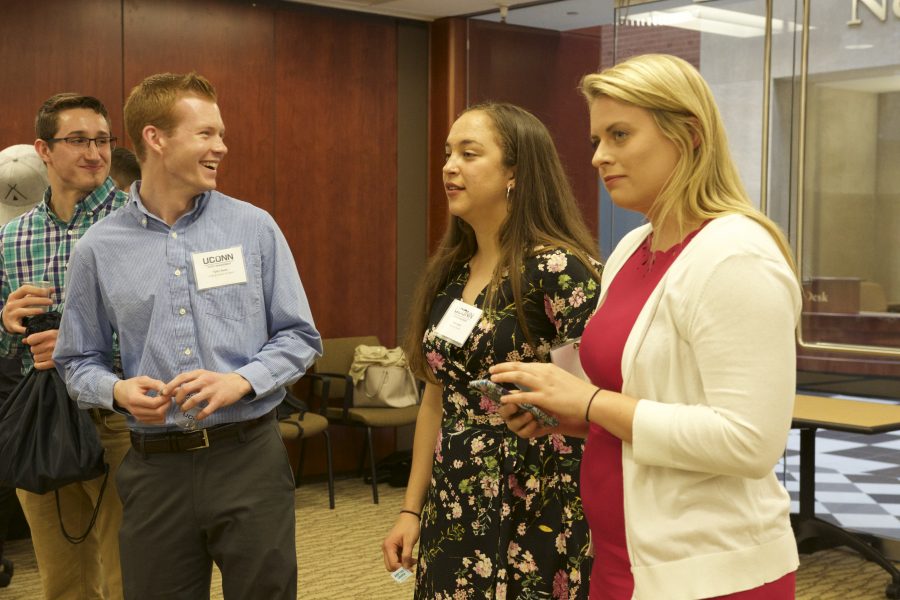
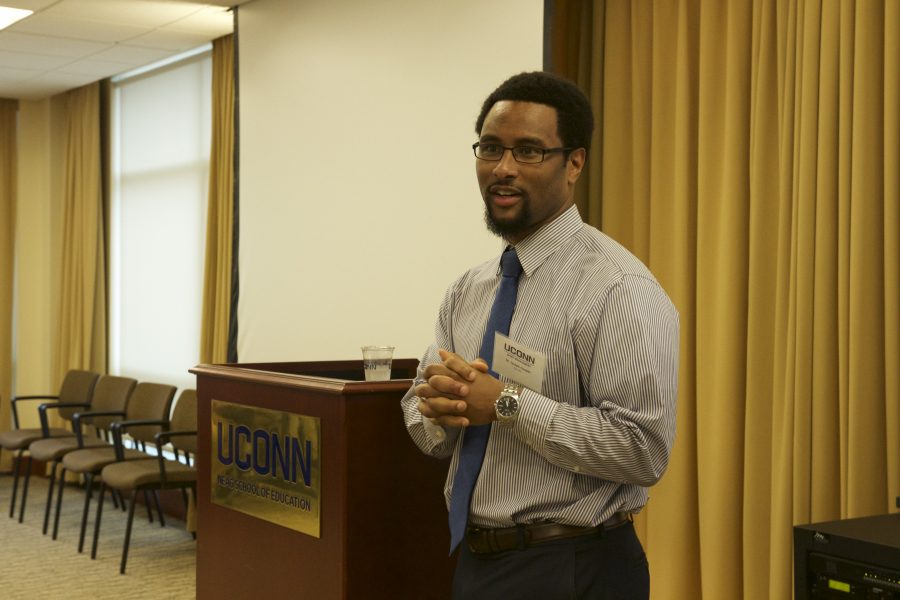
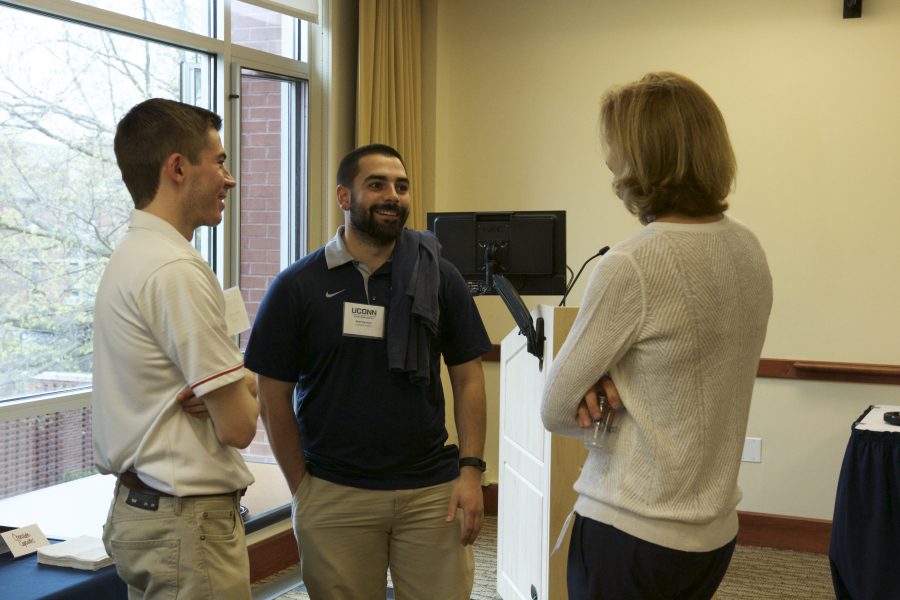
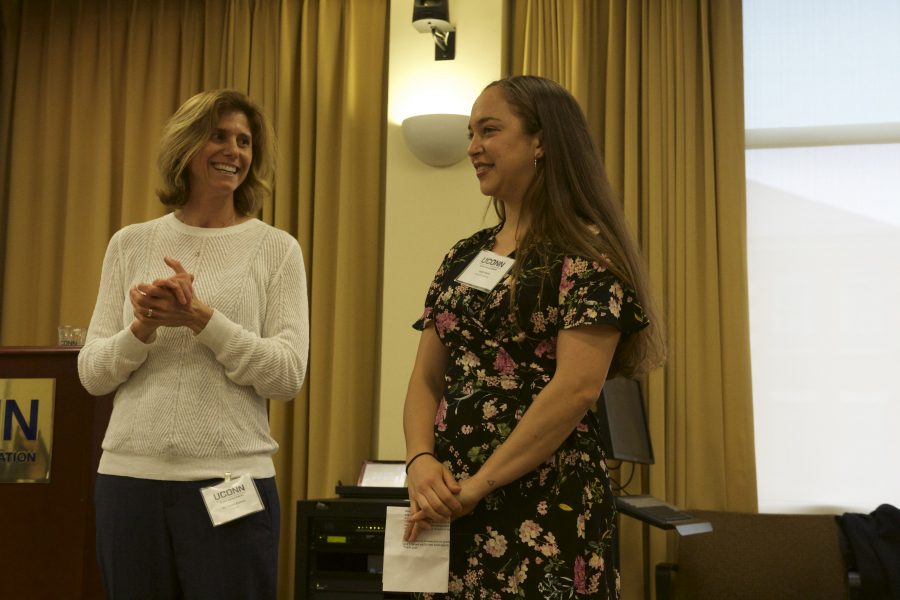
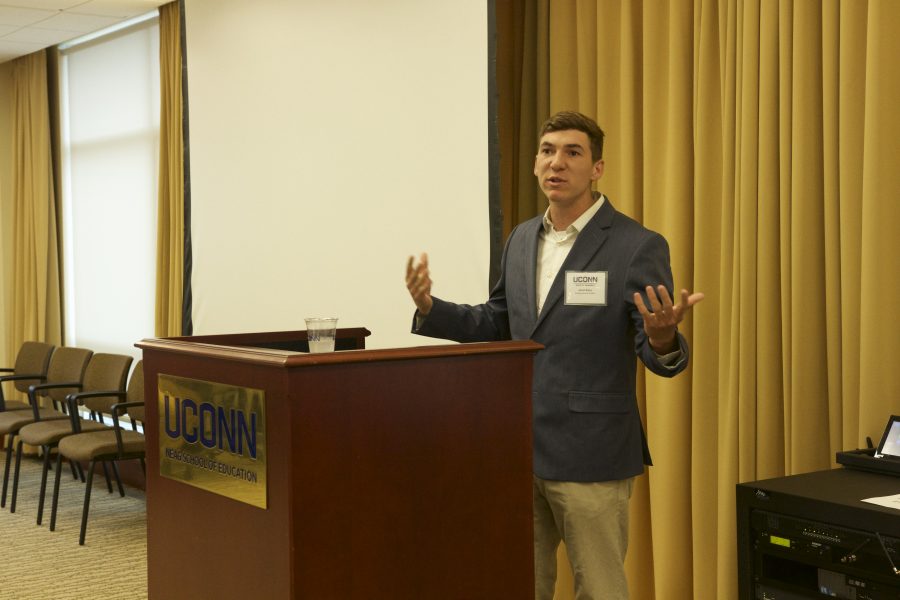
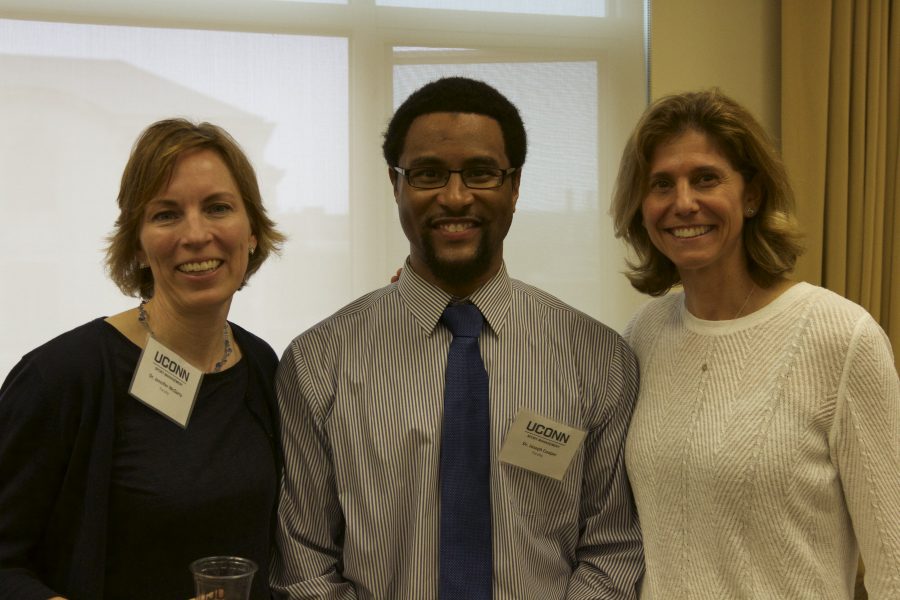
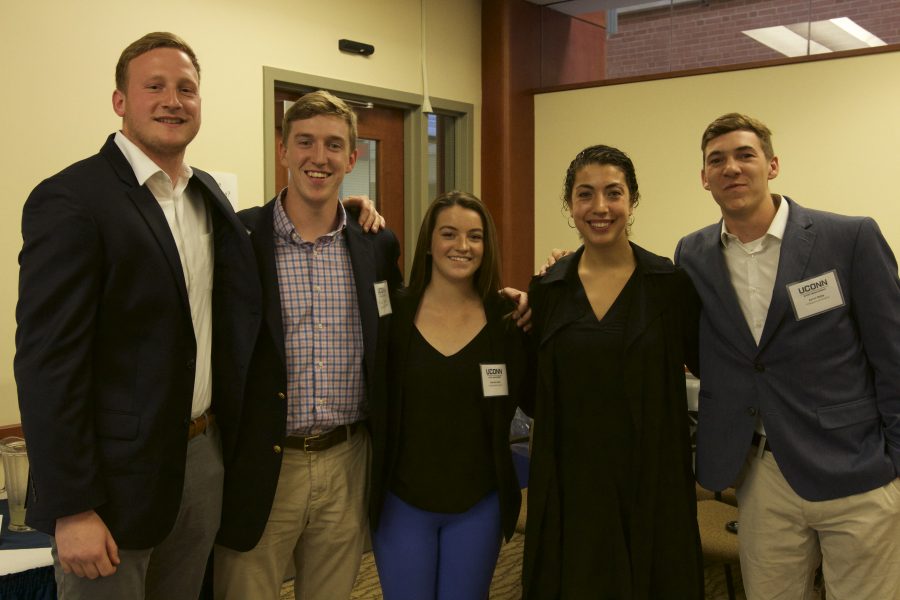
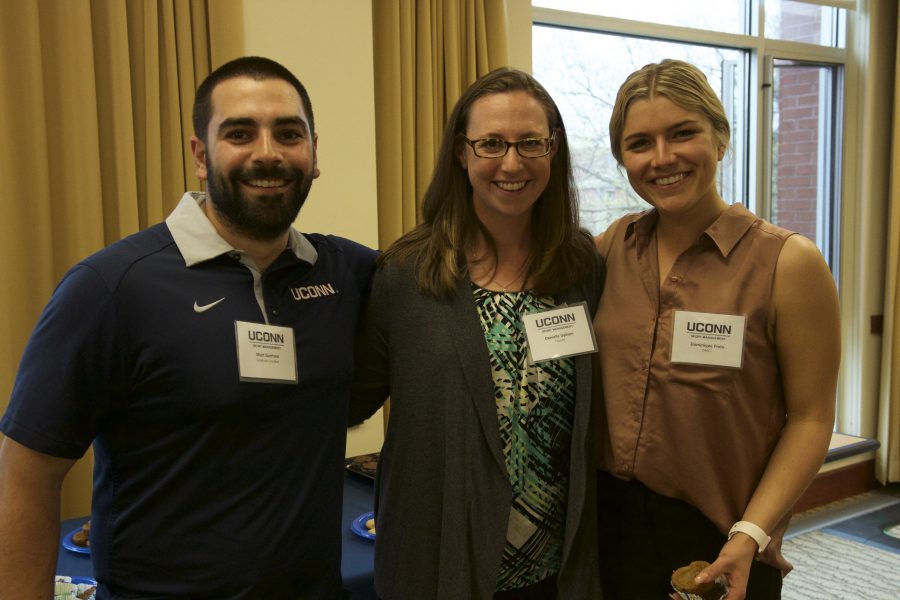
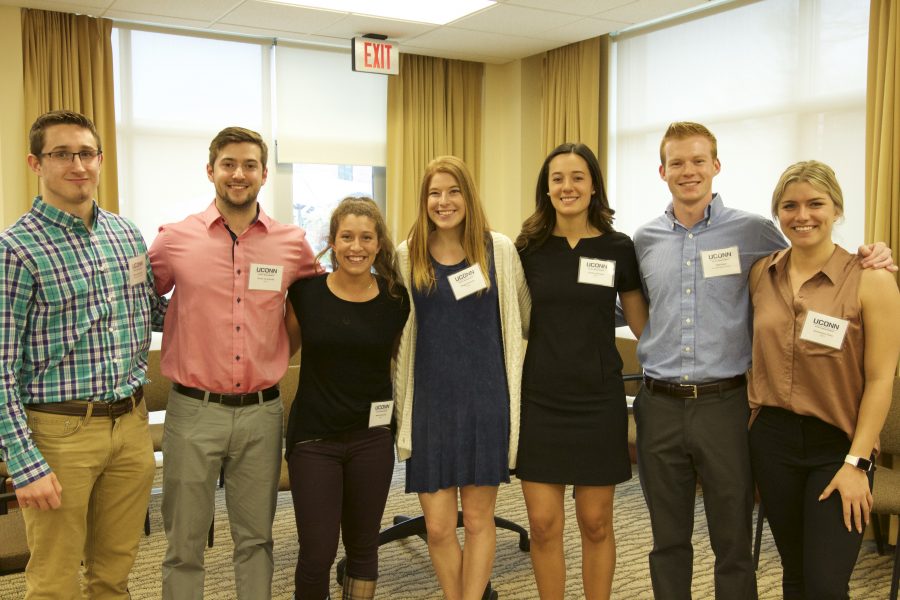
 UConn and since then has dedicated her work in large part to research about the roles of gender in sports. She also served as a faculty member at North Carolina State University.
UConn and since then has dedicated her work in large part to research about the roles of gender in sports. She also served as a faculty member at North Carolina State University. Coaching is an issue Burton holds in importance.
Coaching is an issue Burton holds in importance.